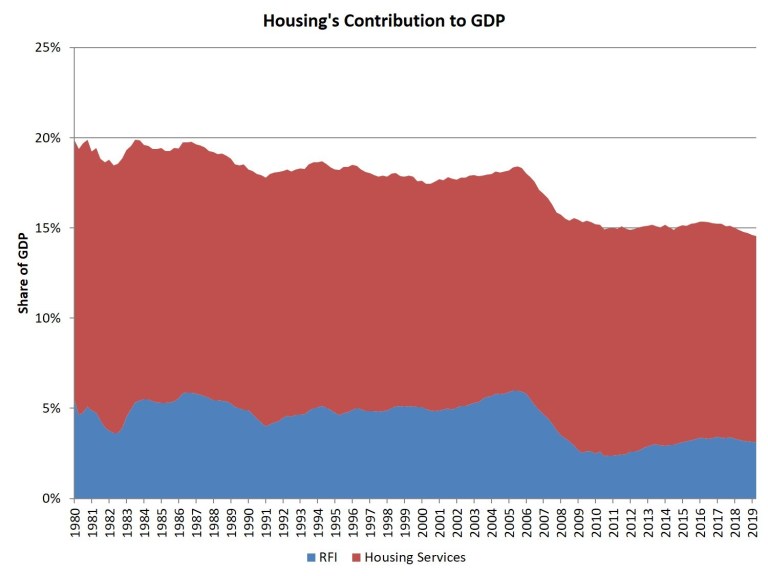With the release of the estimate of second quarter 2019 GDP growth (2.1% growth rate), housing’s share of gross domestic product (GDP) continued a downward trend, more evidence of the the lack of housing supply caused and affected by ongoing housing affordability issues. Housing’s share of GDP fell to 14.6%. The home building and remodeling component – residential fixed investment – made a sixth consecutive negative contribution to GDP growth and declined to 3.1% of GDP.
Housing-related activities contribute to GDP in two basic ways.
The first is through residential fixed investment (RFI). RFI is effectively the measure of the home building, multifamily development, and remodeling contributions to GDP. It includes construction of new single-family and multifamily structures, residential remodeling, production of manufactured homes and brokers’ fees.
For the second quarter of 2019 RFI was 3.1% of the economy, reaching a $589 billion seasonally adjusted annual pace (measured in inflation adjusted 2012 dollars).

The second impact of housing on GDP is the measure of housing services, which includes gross rents (including utilities) paid by renters, and owners’ imputed rent (an estimate of how much it would cost to rent owner-occupied units) and utility payments. The inclusion of owners’ imputed rent is necessary from a national income accounting approach, because without this measure, increases in homeownership would result in declines for GDP.
For the second quarter, housing services was 11.5% of the economy or $2.18 trillion on seasonally adjusted annual basis.
Taken together, housing’s share of GDP was 14.6% for the quarter.
Historically, RFI has averaged roughly 5% of GDP while housing services have averaged between 12% and 13%, for a combined 17% to 18% of GDP. These shares tend to vary over the business cycle.
Source: eyeonhousing





